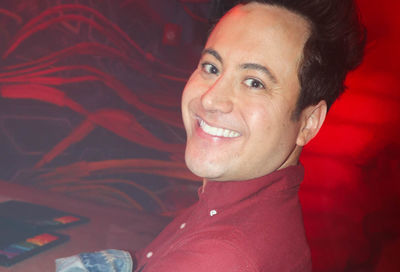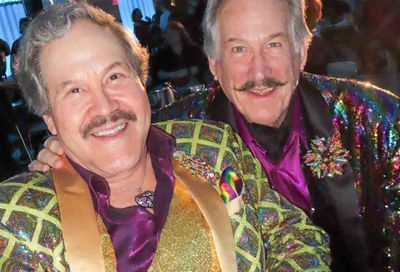News Analysis: Case Closed
The Proposition 8 trial in California may take years to go through the courts, but the arguments show how far marriage equality has come
”The case is submitted.”
With those four words, U.S. District Court Judge Vaughn Walker ended a trial that began in January for a case that began more than a year ago in a matter that is not likely to be resolved for years to come.

Ted Olson
Despite that, the five hours of closing arguments in Perry v. Schwarzenegger held on Wednesday, June 17, served as a relatively succinct primer on the entirety of the debate over the legal recognition of same-sex relationships. It also showed how far that debate has come.
The ”gay marriage” of the ’90s, which evolved into being called same-sex marriage and is now referred to by supporters as marriage equality, was on trial in the federal challenge to Proposition 8 taking place in San Francisco.
As the city celebrated the first Harvey Milk Day on May 22, Judge Walker was reviewing the evidence presented and testimony given in the three-week trial. He came prepared for the closing arguments with questions, peppering the attorneys with extensive questions throughout their closing.
As Ted Olson began his closing argument for the two California couples who cannot get married because of Proposition 8, the scope of the change in the country since the Hawaii Supreme Court first ruled in favor of same-sex marriage in 1994 was clear.
Referencing the oft-repeated claim advanced by proponents of excluding gay and lesbian couples from marriage, Olson told the court, ”And I would submit that, ‘We’ve always done it that way,’ that ‘It’s a traditional definition of marriage,’ . . . is the same – is the corollary to the ‘Because I say so.’ It’s not a reason.”
Later, when the lawyer for the proponents of Proposition 8, Charles Cooper, addressed the court, the judge quickly asked about this point, pushing on the level of evidence presented by the proponents.
”If you have got 7 million Californians who took this position, 70 judges, as you pointed out, and this long history that you have described,” Walker asked, ”why in this case did you present but one witness on this subject?”
Cooper’s answer, circular as it might have been, showed more about the corner into which opponents of marriage equality have painted themselves than any other moment of the trial.
”You need – you need only go back to your chambers, your Honor and pull down any dictionary, pull down any book that discusses marriage,” Cooper said, ”and you will find this procreative purpose at its heart wherever you go.”
Simple enough, though not exactly answering the judge’s question. But, then, Cooper added two caveats – ”Unless, unless, your Honor, that book was written by one of their experts or has been written over the course of the last 30 years” – the second of which opened a window into the modern reality in which this case is being heard.
The judge, Cooper said, should not take into account any materials about marriage written in the past 30 years when rendering his decision. Walker quickly picked up on this, asking, ”What has changed in the last 30 years that has so dramatically altered the landscape that you have just described?”
From that point on until the moment that Walker declared the case submitted, the tables appeared to have turned in a way that left Cooper uncertain of how to proceed – and from which he did not appear to recover. When Walker asked if the changes of the past 30 years led to ”a changed perspective with respect to the role and function of marriage in society,” Cooper was stuck responding, ”In the minds of many, yes, your Honor.”
Yes, your honor.
Walker went on to talk about how the social change surrounding acceptance of interracial marriages ”matured into . . . recognition of a constitutional right” in 1967 when the U.S. Supreme Court decided Loving v. Virginia, which declared Virginia’s law against such marriages unconstitutional. He then asked Cooper, ”Why are we not at that same tipping point here with respect to same-sex marriage?”
Cooper, who initially told the judge there were ”several reasons,” quickly resorted to avoiding the judge’s question altogether – instead talking about how interracial couples are different than same-sex couples. The primary distinction was as unsurprising as it was unconvincing. Cooper told Walker that the ban on interracial marriage was ”at war with the overriding ubiquitous core procreative purpose of marriage.”
Providing neither an answer nor a new argument, Walker quickly interrupted and redirected the conversation – a common occurrence during the two-and-a-half hours of Cooper’s closing.
Then, Olson gave his rebuttal – the final argument before the case would be Walker’s to decide – and he immediately struck at the heart of the concerns Walker had raised.
Of the impact of Proposition 8, Olson said, ”You are discriminating against a group of people. You are causing them harm. You are excluding them from an important part of life. And you have to have a good reason for that.”
Turning to Cooper’s closing, Olson said, ”And I submit, at the end of the day, ‘I don’t know’ and ‘I don’t have to put any evidence,’ with all due respect to Mr. Cooper, does not cut it.
”It does not cut it when you are taking away the constitutional rights, basic human rights and human decency from a large group of individuals, and you don’t know why they are a threat to your definition of a particular institution.”
Whether the argument cuts it with Judge Walker or the various appellate judges who eventually will hear the case, however, will serve as the lasting legacy of Perry v. Schwarzenegger – and Ted Olson’s memorable argument in this historic trial.
Support Metro Weekly’s Journalism
These are challenging times for news organizations. And yet it’s crucial we stay active and provide vital resources and information to both our local readers and the world. So won’t you please take a moment and consider supporting Metro Weekly with a membership? For as little as $5 a month, you can help ensure Metro Weekly magazine and MetroWeekly.com remain free, viable resources as we provide the best, most diverse, culturally-resonant LGBTQ coverage in both the D.C. region and around the world. Memberships come with exclusive perks and discounts, your own personal digital delivery of each week’s magazine (and an archive), access to our Member's Lounge when it launches this fall, and exclusive members-only items like Metro Weekly Membership Mugs and Tote Bags! Check out all our membership levels here and please join us today!





















